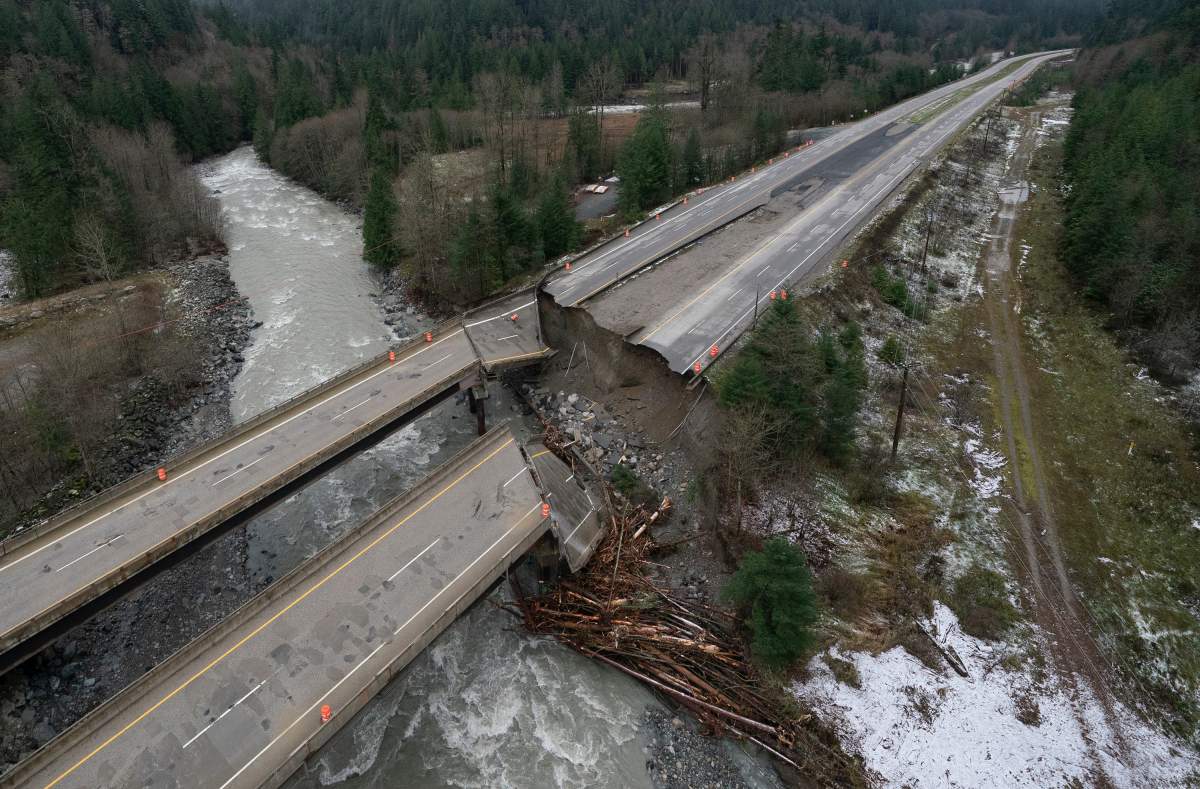Wind, snow and rain are expected to again hit B.C. highways hard in the days ahead, prompting warnings from Environment Canada.

The Coquihalla will get heavy rain starting Monday and it will continue through until Wednesday, the national weather agency said, potentially straining already damaged landscape and infrastructure.
Environment Canada said that between Monday to Wednesday evening, the stretch of the Coquihalla between Hope and the Summit is expected to see up to 70 mm of rainfall.
“Snow is expected initially over Coquihalla Summit but will change to rain by Tuesday afternoon,” the national weather agency said in an alert.

“Snowmelt will contribute to runoff, increasing the risk of flooding and possibly impacting vulnerable landscape and infrastructure.”
Precipitation will particularly impact the western and upslope sections of the highways, Environment Canada said, adding that areas north of Coquihalla Summit are expected to receive lesser amounts.

Get daily National news
Weather is also expected to be challenging to infrastructure through the Fraser Canyon Monday, particularly at Lytton, where wind speeds are forecast to gust at up to 80 km/hr.
“Additionally, rain will fall across the region with heavier amounts near Boston Bar. This will possibly impact vulnerable landscape and infrastructure.”
The province has already warned people to be prepared as two more atmospheric rivers and has closed routes that weren’t already impassable to avoid further issues.
Transportation Minister Rob Fleming said Friday storms will come with an increased risk of landslides, flooding and power outages.
“For people in B.C., the time to prepare is now,” he said at the time.

People should only travel if they have to, he added, and if they have to, they should be prepared with emergency kits, food and water.
Highways may need to close if more flooding becomes a concern, Fleming said, so drivers should consult Drive BC before heading out.
“Crews and equipment are on standby to respond,” he said.
— with files from Amy Judd
- B.C. First Nation opposes cull on its territory after footage of ‘Judas’ wolf
- Tumbler Ridge students won’t ‘return to current school site’ after mass shooting
- Tumbler Ridge school shooting suspect was ‘hunting,’ RCMP says
- They ‘ran into gunfire’: Impact of the Tumbler Ridge shooting on first responders




_848x480_1397405763961.jpg?h=article-hero-560-keepratio&w=article-hero-small-keepratio&crop=1&quality=70&strip=all)

Comments
Want to discuss? Please read our Commenting Policy first.